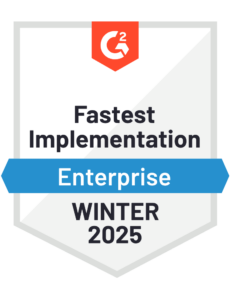Period End Reconciliation — Intercompany Accounting’s End Game
Blog post
Share
Bringing intercompany reconciliation full circle
During the intercompany accounting process, teams handle two types of transactions, trade and non-trade. So far in this series, we’ve gone over how enhancing and automating your preventative controls helps ensure accurate creation of your non-trade transactions, and how detective controls improve the speed and efficiency with trade transactions, but what does that automation and efficiency mean for the period-end reconciliation?
Let’s look back at Swiss AG, and see where they are after automating their intercompany reconciliation process. Enhancing their preventative controls has taken care of their non-trade transactions. Time-consuming errors due to incorrect bookings of shared costs between the companies are now a thing of the past, and all non-trade transactions are preventatively checked before being posted; any discrepancies between the subsidiaries are quickly brought to the attention of the right people so that they can be fixed on time within a shared, controlled environment.
Thanks to the automated detective controls, the hundreds of thousands of trade transactions between Almonds Inc. and the Swiss manufacturing entity are now reconciled with ease. Any discrepancies between the two subsidiaries’ ledgers are quickly discovered and reconciled accurately –removing the error-prone spreadsheets and risk-filled matching process that formally bogged down their reconciliation process.
The end result of automating Swiss AG’s intercompany process is that reconciling their period end is predictable, reliable and fast. Newly enhanced controls have drastically reduced the number of accounts and transactions that require an auditor’s attention and have also decreased the time needed to come to an effective and safe close. Because of the defined process and documentation provided to auditors whenever discrepancies arise, there’s full visibility into any issues between subsidiaries’ ledgers, and organizations can avoid spreadsheets and the inefficiency and risk that comes with them. When everything is said and done, settlement amounts are finalized, bottlenecks within the workflow process have been avoided, and Swiss AG can be confident in their period end reconciliations process, knowing that they’ve prevented the chance of costly misstatements.
To learn about how to create a best-in-class intercompany accounting process check out our video, “How to Make Intercompany Accounting Predictable and Reliable.”
The Complete Series:
Making Non-Trade Intercompany Accounting a Non-Problem
Intercompany Accounting Series 1 of 3
Detecting the Discrepancies in Your Trade Transactions
Intercompany Accounting Series 2 of 3
Period End Reconciliation — Intercompany Accounting’s End Game
Intercompany Accounting Series 3 of 3
Written by: Caleb Walter







